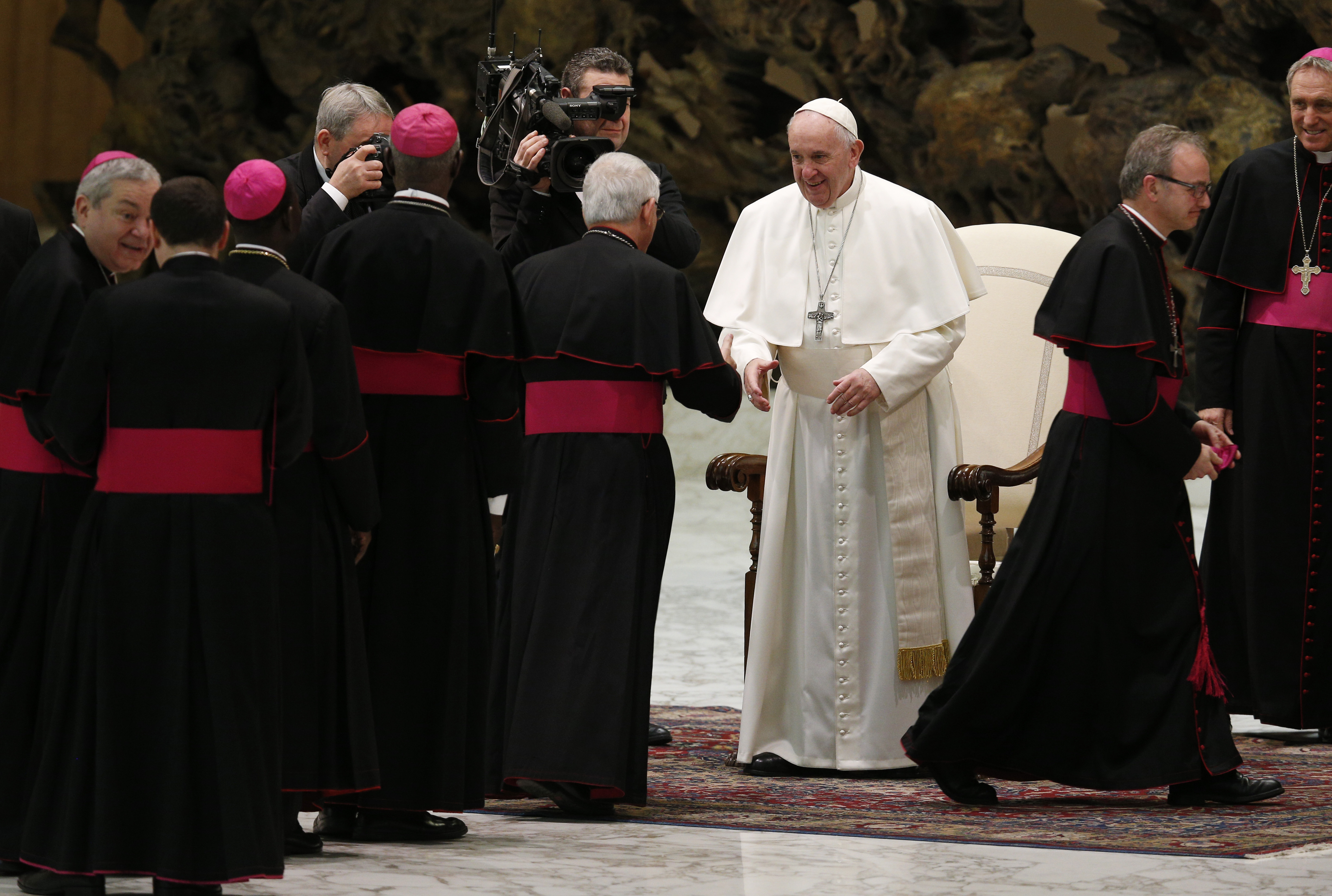VATICAN CITY (CNS) -- At the upcoming meeting on protecting minors, Pope Francis wants leaders of the world's bishops' conferences to clearly understand what must be done to prevent abuse, care for victims and ensure no case is whitewashed or covered up.
"The pope wants it to be an assembly of pastors, not an academic conference -- a meeting characterized by prayer and discernment, a catechetical and working gathering," Alessandro Gisotti, interim director of the Vatican press office, told reporters Jan. 16.
The Feb. 21-24 meeting on the protection of minors in the church "has a concrete purpose: The goal is that all of the bishops clearly understand what they need to do to prevent and combat the worldwide problem of the sexual abuse of minors," Gisotti said, reading from a written communique in Italian and English.
"Pope Francis knows that a global problem can only be resolved with a global response," he said.
The pope announced in September that he was calling the presidents of the world's bishops conferences, the heads of the Eastern Catholic churches and representatives of the leadership groups of men's and women's religious orders to the Vatican to address the crisis and focus on responsibility, accountability and transparency.
Gisotti said, "It is fundamental for the Holy Father that when the bishops who will come to Rome have returned to their countries and their dioceses that they understand the laws to be applied and that they take the necessary steps to prevent abuse, to care for the victims and to make sure that no case is covered up or buried."
He acknowledged the "high expectations" surrounding the meeting and emphasized that "the church is not at the beginning of the fight against abuse."
"The meeting is a stage along the painful journey that the church has unceasingly and decisively undertaken for over 15 years," he said.
In a separate communique, the Vatican press office said the meeting's organizing committee met with Pope Francis Jan. 10. The committee members are Cardinals Blase Cupich of Chicago and Oswald Gracias of Mumbai, India; Archbishop Charles Scicluna of Malta, adjunct secretary of the Congregation for the Doctrine of the Faith; and Jesuit Father Hans Zollner, president of the Centre for the Protection of Minors at the Pontifical Gregorian University and a member of the Pontifical Commission for the Protection of Minors.
The members informed the pope about their preparations for the gathering, which will include plenary sessions, working groups and moments of common prayer and "listening to testimonies."
Pope Francis has asked Jesuit Father Federico Lombardi, the former director of the Vatican press office, to moderate the plenary sessions.
The meeting will include a penitential liturgy Feb. 23 and a closing Mass Feb. 24, Gisotti said.
"Pope Francis guaranteed his presence for the entire duration of the meeting," the communique said.
The organizing committee has already informed participating bishops that they should prepare for the gathering by meeting with survivors of abuse.
"The first step must be acknowledging the truth of what has happened. For this reason, we urge each episcopal conference president to reach out and visit with victim survivors of clergy sex abuse in your respective countries prior to the meeting in Rome to learn firsthand the suffering that they have endured," said the committee in a letter released to the public by the Vatican Dec. 18.
Without "a comprehensive and communal response" to the abuse crisis, the committee said, "not only will we fail to bring healing to victim survivors, but the very credibility of the church to carry on the mission of Christ will be in jeopardy throughout the world."
The members also had sent participants a questionnaire so they could "express their opinions constructively and critically as we move forward, to identify where help is needed to bring about reforms now and in the future, and to help us get a full picture of the situation in the church."
Pope Francis, they had said, "is convinced that through collegial cooperation, the challenges facing the church can be met. But each of us needs to own this challenge, coming together in solidarity, humility and penitence to repair the damage done, sharing a common commitment to transparency and holding everyone in the church accountable."









